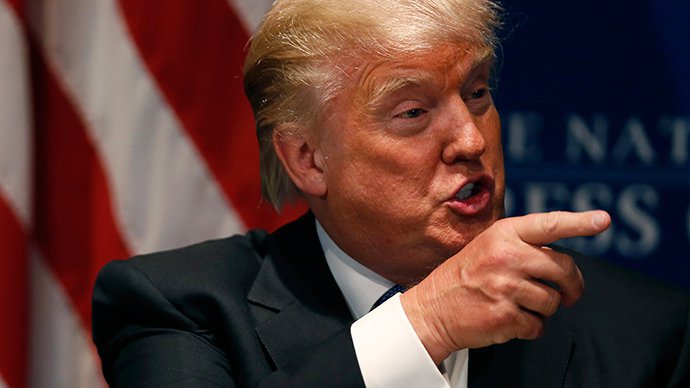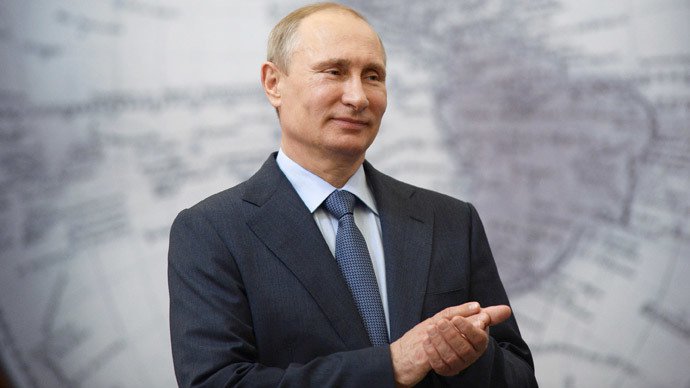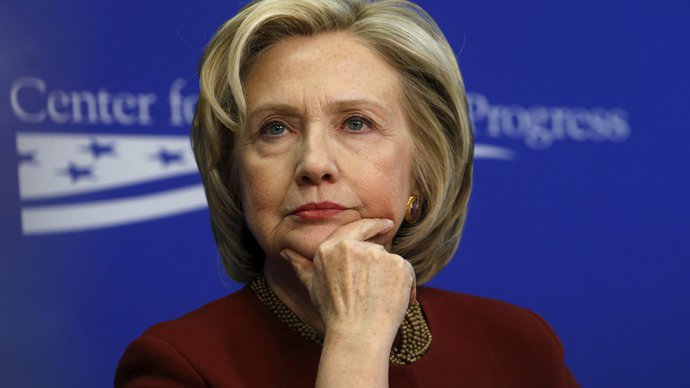Donald Trump asserted Friday that hacking did not sway the US election, after a briefing on an intelligence report that blamed Russia’s Vladimir Putin for a cyber campaign to keep Hillary Clinton out of the White House.
While the president-elect held fast to his rejection of the intelligence community’s conclusion that Russia interfered in the election, he accepted the possibility that Moscow was involved in hacking US targets including the Democratic National Committee.

After meeting four top intelligence chiefs, Trump acknowledged that cyber attacks by Russia, China and other countries threaten US institutions, political parties and businesses.
But he offered no direct acceptance of the intelligence chiefs’ conclusion that Moscow staged an unprecedented attempt to influence the 2016 White House race by hacking and leaking documents that, they said in a new report, also aimed to boost Trump’s campaign.
“While Russia, China, other countries, outside groups and people are consistently trying to break through the cyber infrastructure of our governmental institutions, businesses and organizations including the Democrat National Committee, there was absolutely no effect on the outcome of the election,” Trump said in a statement.
Trump met the heads of the Directorate of National Intelligence, the Central Intelligence Agency, the Federal Bureau of Investigation and the National Security Agency in New York on their report into Moscow’s alleged interference.
Putin ‘preferred Trump’
A declassified version of the report — released to the public by the Director of National Intelligence — said Putin personally ordered a campaign of hacking and media manipulation to undermine the Democrat’s candidate, Clinton, who had widely been expected to win the November 8 election.
“Russia’s goals were to undermine public faith in the US democratic process, denigrate Secretary Clinton, and harm her electability and potential presidency. We further assess Putin and the Russian Government developed a clear preference for President-elect Trump,” they said.
The report offered little new evidence on how US intelligence agencies reached their conclusion, and Russia has denied any election meddling.

President Barack Obama had already taken retaliatory action on December 29, expelling 35 Russians he said were intelligence operatives, and placing sanctions on a number of other Russian officials and entities.
“I think that what is true, is that the Russians intended to meddle and they meddled,” Obama said in excerpts of an interview set to air Sunday on ABC’s “This Week.”
“One of the things I am concerned about is the degree to which we’ve seen a lot of commentary lately where there are Republicans or pundits or cable commentators who seem to have more confidence in Vladimir Putin than fellow Americans because those fellow Americans are Democrats. That cannot be,” Obama said.
Trump’s meeting with intelligence chiefs, which the Republican called “constructive,” may have smoothed over ruffled feelings between the intelligence bureaucracy and the incoming president.
Just before the meeting, Trump branded the focus on Russia a “political witch hunt” in an interview with the New York Times.
But Trump subsequently said that as soon as he takes office on January 20 he will give a team 90 days to come up with a plan to halt cyber attacks.
“Whether it is our government, organizations, associations or businesses we need to aggressively combat and stop cyber attacks,” he said.
Trump later blamed Democratic Party for lax cyber security.
“Gross negligence by the Democratic National Committee allowed hacking to take place. The Republican National Committee had strong defense!” he wrote on Twitter.
Election legitimacy
The report was likely to increase sensitivity over the outcome of an election in which Clinton won the popular vote but lost to Trump in the electoral college, which decides the winner.
“We must also be clear that there is no evidence that there was any interference in the voting or balloting process,” said House Speaker Paul Ryan in a statement.

“We cannot allow partisans to exploit this report in an attempt to delegitimize the president-elect’s victory. Donald Trump won this election fair and square because he heard the voices of Americans who felt forgotten.”
Republican Senator Lindsey Graham, who has strongly criticized Trump’s dismissal of the intelligence on Russia, agreed.
“Russian cyber attacks did not affect the vote tally and were not responsible for the outcome,” Graham said in a statement.
However, Democratic Representative Adam Schiff rejected that conclusion.
“The president-elect’s statement that the Russian hacking had ‘absolutely no effect on the outcome of the election’ is not supported by the briefing, report or common sense,” he said.
Feature Image Source: Reuters

















